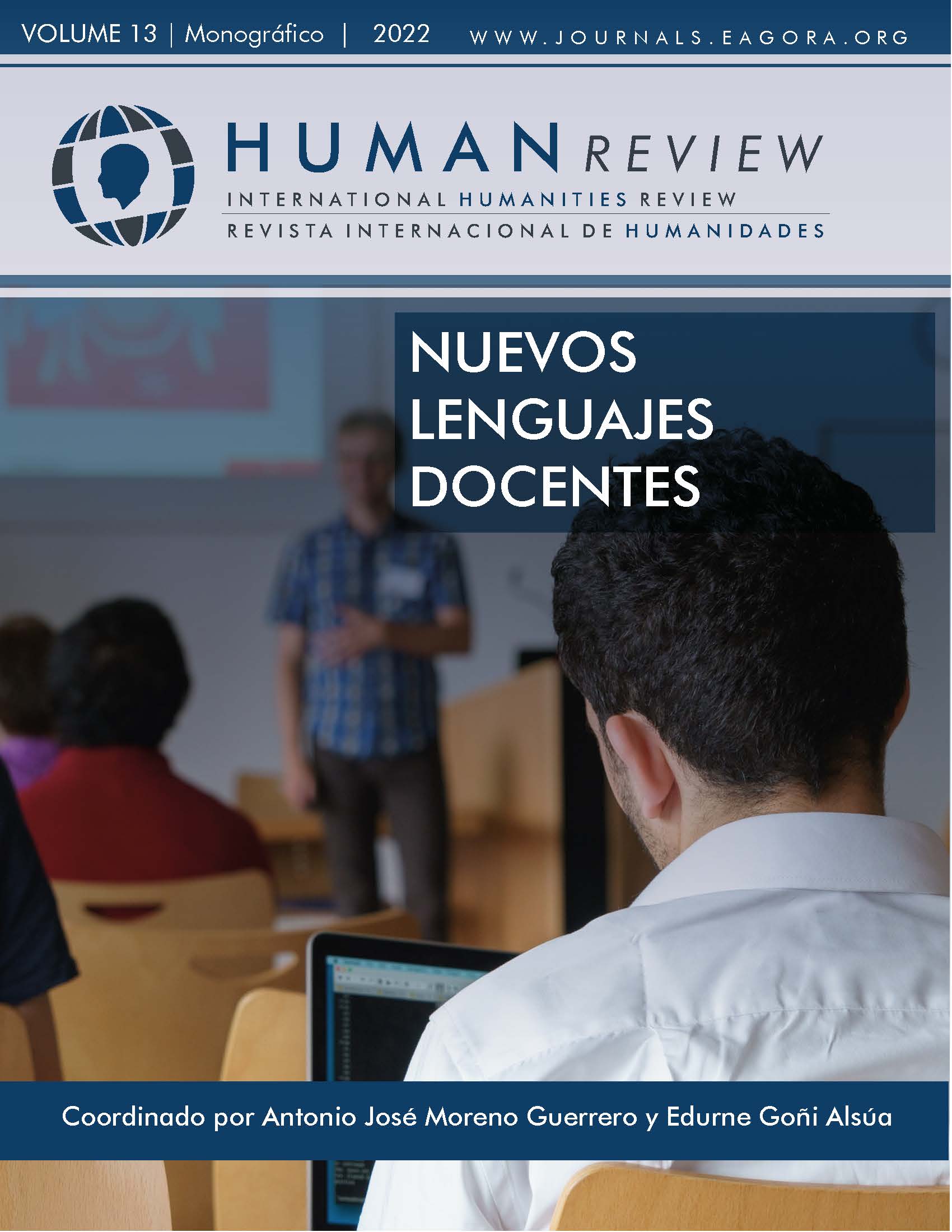The intercultural school and the training of the global citizen: the competences of participatory citizenship
DOI:
https://doi.org/10.37467/revhuman.v11.4014Keywords:
Interculture, School, Participation, Responsibility, Recognition, Education, OthernessAbstract
Emancipating from prejudices, dogmatism, fears and mistrust through direct participation is the knot of education for democracy to be solved for a discipline such as education which, in contemporary times, cannot and must never be deaf to change. The essential assumption is that citizenship education needs a solid ethical and moral dimension, as well as a personal and social one, before political and administrative; only when the awareness of the inviolable rights of individuals, men and citizens, of their indifferent protection and awareness of the choices to be made for their exercise emerges from below, then it is possible to organize the step to be taken in the direction of educational and training choices.
References
Allemann-Ghionda C. (2015). Dealing with Diversity in Education: A Critical View on Goals and Outcomes, in Matejskova T., Antonsich M. (Ed.). Governing through Diversity. Global Diversities, Palgrave Macmillan, pp. 155-185.
Annino A. (2022). L’educazione al civismo nella società contemporanea. Prospettive partecipazione intercultura. Pensa MultiMedia.
Asquini G. (2019). La Ricerca – Formazione. Temi, esperienze e prospettive. Franco Angeli.
Cadei L. (2005). La ricerca e il sapere per l’educazione. I.S.U.
Campanini M. (2016). L’Islam, religione dell’occidente, Mimesis.
Clanet C (1985). L’Interculturelle en education et en Sciences Humaines, Universitè de Tolouse le Mirail.
Dato D. (2014). Professionalità in movimento. Riflessioni pedagogiche sul “buon lavoro”. Franco Angeli.
«Documento programmatico relativo alla politica dell›immigrazione e degli stranieri nel territorio dello Stato», ex art. 3 Legge 6 marzo 1998, n. 40, Disciplina dell’immigrazione e norme sulla condizione dello straniero, «Gazzetta Ufficiale» n. 59 del 12 marzo 1998 – Supplemento Ordinario n. 40.
Fiorucci M. (2020). Educazione, formazione e pedagogia in prospettiva interculturale. Franco Angeli.
Gagliardo M. Rispoli F., Schermi M. (Ed.). (2021). Crescere il giusto. Elementi di educazione civile. Edizioni Gruppo Abele.
Gardner H. (2007). Responsibility at work. San Francisco.
Gundara J. (2015). The Case for Intercultural Education in a Multicultural World. Mosaic Press.
Gundara J. (2000). Interculturalism, education and inclusion. Chapman Publishing Ltd.
Hofstede, G. (2001). Culture’s Consequences. Comparing Values, Behaviors, Institutions and Organisations Across Nations. Sage Publications, Thousand Oaks.
Lovin C.R. (1967) Blut Und Boden: The Ideological Basis of the Nazi Agricultural Program, in «Journal of the History of Ideas» Vol. 28, No. 2 (Apr. - Jun., 1967), University of Pennsylvania Press, pp. 89-124.
M.Kricke, S. Neubert, (Ed). (2020). New Studies in Deweyan Education. Democracy and Education Revisited, Taylor& Francis.
LEGGE 20 agosto 2019, n. 92, Introduzione dell’insegnamento scolastico dell’educazione civica, in «Gazzetta Ufficiale», 21 agosto 2019, n. 195.
Portera A. (2022). Educazione e pedagogia interculturale. Varcare steccati nel tempo del pluralismo, Il Mulino.
Portera A. (2006). Globalizzazione e pedagogia interculturale. Interventi nella scuola, Erickson.
Santerini M. (2019). L’educazione alla cittadinanza nell’era della post-verità, in S. Polenghi, M. Fiorucci, L. Agostinetto, a cura di, Diritti Cittadinanza Inclusione. Pensa MultiMedia.
Schultz W. (Ed.). (2018). Becoming Citizens in a Changing World, IEA International Civic and Citizenship Education Study 2016 International Report, Springer Open.
Trinchero R. (2004). I metodi della ricerca educativa. Laterza.
Downloads
Published
How to Cite
Issue
Section
License
Those authors who publish in this journal accept the following terms:
- Authors will keep the moral right of the work and they will transfer the commercial rights.
- After 1 year from publication, the work shall thereafter be open access online on our website, but will retain copyright.
- In the event that the authors wish to assign an Creative Commons (CC) license, they may request it by writing to publishing@eagora.org









